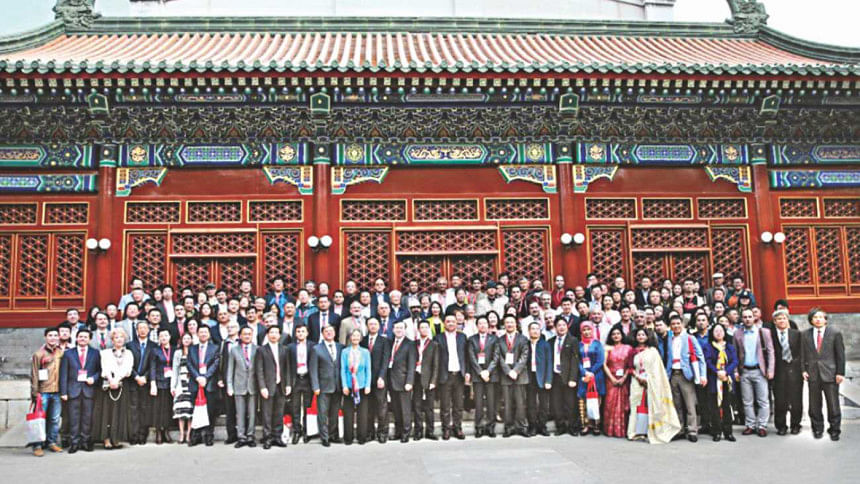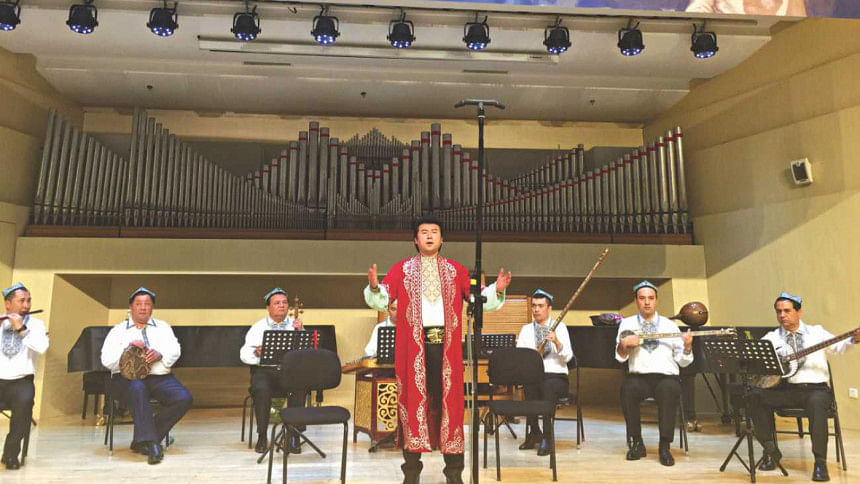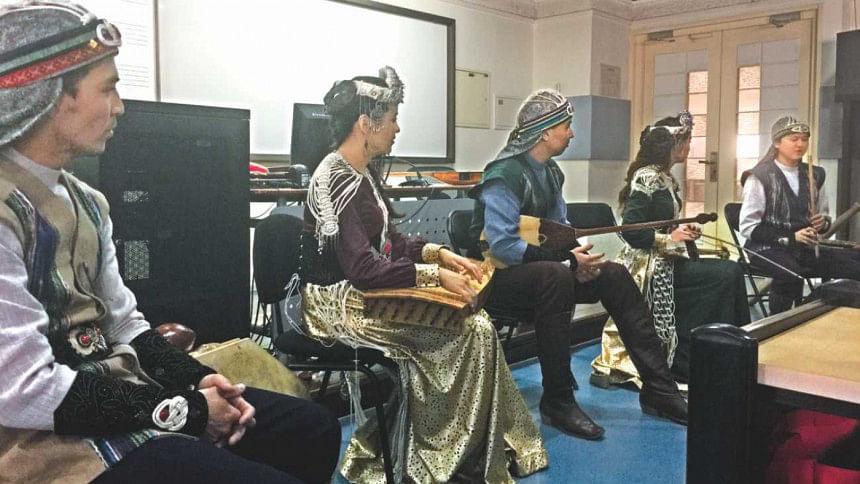Redefining the world through Music

At the first Rector's Forum of the just completed 'Inaugural Conference of Music Education Alliance Across the Silk Road (MEASR)' held in Beijing from May 5 to 7, 2017 at China's Central Conservatory of Music (CCOM) and supported by the Chinese Ministry of Education, Wang Zhen, President of the Xi'an Conservatory of Music, very clearly stated that the intention ofthe MEASR was to 'together redefine the world through music'. There was no beating about the bush. Speaker after speaker stated, in no uncertain terms, the need to build bridges. While walls were being built elsewhere in the world, China welcomed more than 70 musicians and musicologists from 16 countries, including Bangladesh, India, Thailand, Vietnam, Turkey and Uzbekistan, to attend the inaugural conference along with their Chinese peers. Top representatives from10 music schools in the country also participated in this unique meet that joined hearts through the diverse sounds of music.
"The Silk Road, which linked traders, pilgrims, monks, nomads and others, was not only a trade route but was also important for the development of culture and civilization', said Yu Feng, President of CCOM. "Music is an important bridge. We want to strengthen understanding and promote cultural exchanges among the countries through this conference," he added. Starting this year, the Alliance plans to annually host concerts, workshops and exhibitions to promote cultural connections within the countries on the Silk Road.

The music conference was held ahead of the first 'Belt and Road Forum' scheduled to be held in Beijing from May 14-15 of this year. Incidentally, the Belt and Road Initiative, announced by President Xi Jinping in 2013, aims to revitalize economic, cultural and other links along the ancient Silk Road between China and other parts of the world.
Attending this gala event, the historicity of such a get-together, reverberated in all our hearts. Beginning with a recital of 'gamelan', conducted by Indonesian Prof Sumarsam, for 3 days the corridors of the neatly fitted CCOM rang out with ethereal music. Listening to the Turko-Persian melodies of the Uzbekistan musicians, who proudly claimed to be 'nakshbandi' followers of Imam Bukhari, one was immediately reminded of the haunting melody of the 'azaan', which we hear daily. The young ethno-folk group, HasSak, from Kazakhsthan, on the other hand, totally stole our hearts with their vibrant music and glittering outfits. From Bangladesh, Shadhona, represented by myself and dancers Amit Chowdhury and Sweety Das, presented the history of spiritual music, from Charyagiti all the way up to Baul, emphasizing the importance of literature in our music. If this wasn't diversity enough, each evening concerts were held to highlight music from the different regions along the Silk Road.
On the opening night the CCOM Ensemble outdid themselves in presenting not just Chinese music, but music from all over the world, including an outstanding aria, from the Russian opera 'Rusalka' by soprano Zhang Li Ping. The second evening was dedicated to the sounds of music from Central Asia, which included 'maqam'. The term "shashmaqam" translates as six maqams and refers to the structure of music with six sections in different musical modes. Interludes of spoken Sufi interrupt the music. The concluding recital was sounds from the 'Grassland to Ocean', starting from Kazakhstan, through India, to Bangladesh.
Syed Jamil Ahmed and Kamal Uddin, both from the University of Dhaka, also represented Bangladesh through their academic papers.

Prof Zhang Boyu, Chair of the Department of Musicology at the CCOM, is to be congratulated for putting together this gala event not just efficiently, but with a lot of passion and care. Young students from the CCOM were attached to each country, tending to each one's needs with loads of love. They will all be remembered fondly.
At the inaugural, Xu Tao, Director of the Department of International Cooperation and Exchange, at the Chinese Ministry of Education, had stated that the MEASR envisioned a 'union of hearts by supporting new talents through music education'. This is a 'mission of great significance' as China is all set to attract more students from countries along the Belt and Road Initiative. Also at the inaugural, Guo Shulan, Secretary of the Central Conservatory of Music, spoke about the need to reach people's hearts in the process of rebuilding the Silk Road.
This reverberates well with the old Chinese proverb, 'A single tree makes no forest; one string makes no music'.
As we heard the ballad of 'Laily and Majnoon' being sung by the young and handsome Uzbek singer Ilhom Ismoilov, it was most powerfully brought home to us, that human commonality far supersedes differences.

 For all latest news, follow The Daily Star's Google News channel.
For all latest news, follow The Daily Star's Google News channel. 



Comments